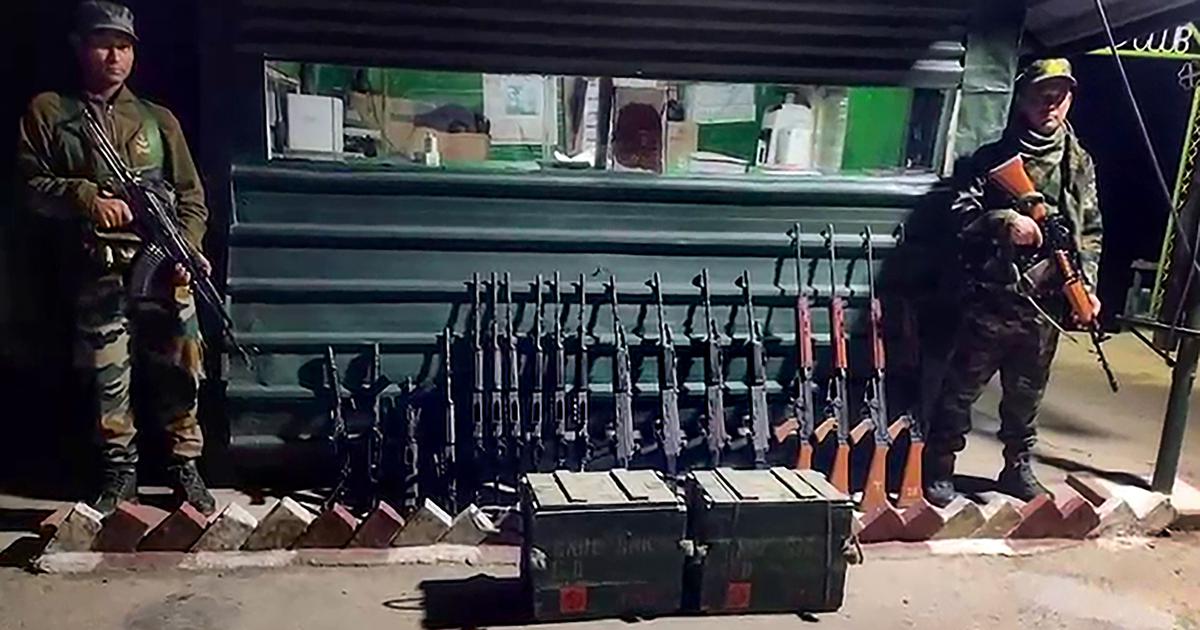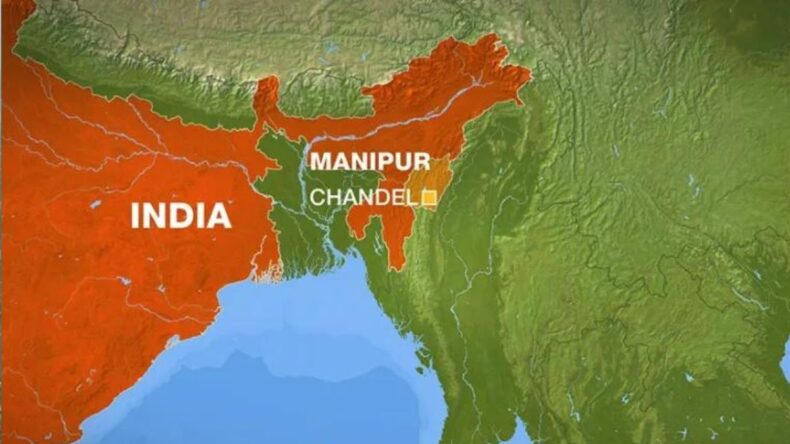The northeastern state of Manipur is grappling with a deepening crisis that threatens to undermine its fragile peace. At the heart of this crisis lies the theft of 6,000 sophisticated arms and 6 lakh rounds of ammunition from security forces, a heist with dire implications for the region’s security and stability. Deputy leader of the Congress in Lok Sabha, Gaurav Gogoi, asserts that recovering these stolen weapons is not just a matter of law enforcement but a crucial prerequisite for establishing lasting peace and normalcy in Manipur.

Table of Contents
Tensions and Stolen Arms
Since May 3, Manipur has been impaired by persistent violence fueled by communal tensions and ethnic clashes. The stolen weaponry initially intended to maintain law and order, now poses a grave threat as it could potentially be turned against innocent civilians by various armed factions. Gogoi’s urgency to address this issue stems from his belief that the recovery of stolen arms is intrinsically linked to the broader goal of reconciliation between conflicting parties. He emphasizes the need for meaningful dialogue as the cornerstone of any viable peace process.
Tensions and Dissatisfaction
Adding to the situation’s complexity is the dissatisfaction expressed by both the Meitei and Kuki communities with Chief Minister N Biren Singh’s administration. Gogoi highlights the detrimental role played by Home Minister Amit Shah’s unequivocal support for the chief minister, which, in his view, has hampered genuine peace talks. This points to a critical need for an impartial and inclusive mediation process that addresses the concerns of all stakeholders.
Rehabilitation and Accountability
Gogoi’s call for peace extends beyond the cessation of violence; it encompasses rehabilitating those affected by the conflict. He draws attention to approximately 60,000 individuals who remain displaced and confined to relief camps. For Gogoi, a comprehensive peace process must entail robust rehabilitation efforts that allow these displaced individuals to rebuild their lives and communities. Furthermore, Gogoi underscores the imperative of leadership accountability, criticizing Prime Minister Narendra Modi for remaining silent on critical corruption and governance issues.
Political Landscapes and Divisions
The renaming of the Nehru Memorial Museum to the Prime Ministers’ Museum and Library Society serves as a microcosm of Manipur’s broader ideological divisions. Gogoi contends that this act is emblematic of the ongoing ideological clash between different majoritarian strands. The resultant polarization further complicates efforts to achieve genuine reconciliation and lasting peace.
The Use of Force in Internal Security
The article delves into the nuanced discourse surrounding using force to address internal security challenges. The example of Mizoram illustrates varying viewpoints on this matter. The central question of whether military deployment is a viable solution remains a subject of contention. Striking a balance between preserving security and avoiding civilian casualties emerges as a complex challenge that requires careful consideration.
Majoritarianism and Coup-Proofing
A recurring theme is majoritarianism, which intertwines local and national dynamics. The article suggests that majoritarian thinking has fostered a symbiotic relationship between local and national agendas, potentially sidelining marginalized communities and perpetuating a climate of political acquiescence. The notion of “coup-proofing” also surfaces, shedding light on concerns surrounding the politicization of the military and its potential erosion of professional competence.
As Manipur grapples with a multifaceted crisis, Gogoi’s call for recovering stolen arms takes on a greater significance. It symbolises the broader efforts required to restore peace, rebuild communities, and address the deep-rooted challenges that have fueled violence. The road ahead demands the return of stolen weapons and a comprehensive, inclusive, and sustained peace process that addresses grievances, promotes reconciliation, and ensures accountability. The fate of Manipur rests not just on the recovery of arms but on the collective resolve of the nation to forge a path towards lasting peace and prosperity.













